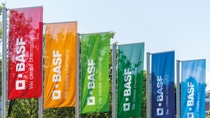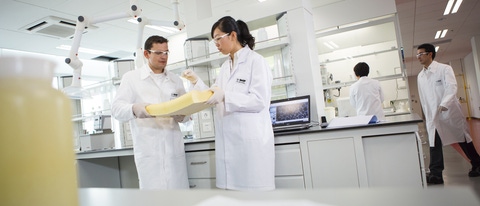Who we are
Innovate with us!
At BASF, we strive to find solutions to the global challenges we face on a daily basis. This objective requires thinking outside the box and seeking integrated results. Collaboration is key in creating solutions. To achieve this goal, we consistently join forces with experts from different sectors with diverse backgrounds and a broad variety of know-how. With that in mind, we invite you to innovate with us!
Join us in our efforts to innovate for a sustainable future: we welcome you to bring in your expertise to help with our ongoing challenges. In our open collaborations, you may find a perfect match with your profile. Take initiative and get in touch with us.
Ongoing Challenges
Open Collaboration
While the world’s population and the resulting demands continue to grow, the planet’s resources are limited. Chemistry is an enabler; it provides solutions for current and future societal needs. To find the best solutions, we collaborate with excellent minds from start-ups, industry and academia.
Related News Releases:
Date
Results: 2089

Mark Garrett to be proposed for election to the Supervisory Board of BASF SE at the Annual Shareholders’ Meeting 2026
The Supervisory Board of BASF SE has today (February 25, 2026), upon proposal of the Nomination Committee, nominated Mark Garrett (63) for election as shareholder representative on the Supervisory Board. The election is to take place at the Annual Shareholders’ Meeting of BASF SE on April 30, 2026.

Sustainability drives mobility: BASF produces AdBlue GE with 100 percent green electricity
BASF is launching AdBlue® GE (Green Electricity) by BASF, a new product that is produced entirely with electricity from renewable sources. This reduces CO2 emissions in the manufacturing process compared to conventionally produced AdBlue and improves the CO₂ footprint.

Advance Notice: Annual Press Conference on February 27, 2026, at 10.30 a.m. (CET)
On Friday, February 27, 2026, the Annual Press Conference of BASF SE will be held in Ludwigshafen, Germany. From 10.30 a.m. (CET) BASF’s Chairman of the Board of Executive Directors Dr. Markus Kamieth and Chief Financial Officer Dr. Dirk Elvermann will present the 2025 financial results. The conference will be transmitted via the internet.
BASF supports European BDO supply security through increased production in Ludwigshafen
BASF’s Intermediates division is taking decisive steps to further strengthen supply security for its European customers in the 1,4‑butanediol (BDO) value chain.
BASF to further strengthen Global Business Services through global Hub setup
BASF advances the transformation of its Global Business Services organization, aiming to take the next step to secure long-term cost competitiveness, resilience, and consistent service delivery for its businesses worldwide.







